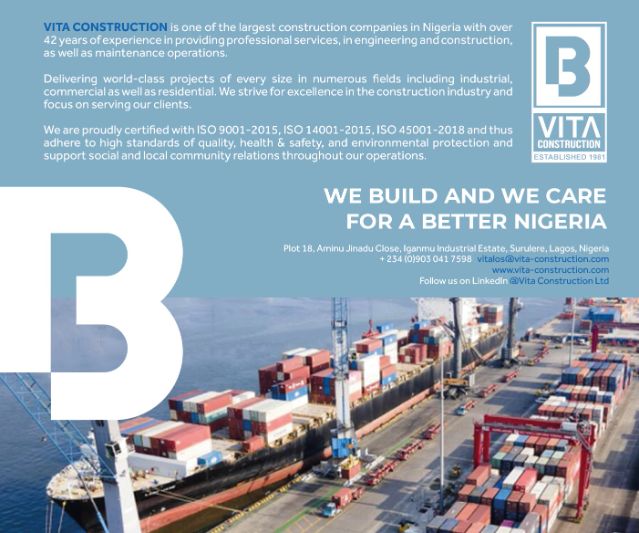France and New Zealand will run out before a sold-out Stade de France in the much-anticipated opening match of the Rugby World Cup in the Parisian suburb of Saint-Denis on September 8. The match is the eighth instalment in one of World Cup rugby’s fiercest rivalries.
New Zealand went into the 1999 Rugby World Cup as clear favourites. Everything was going to plan as Taine Randell’s men rolled through their pool matches, handling the English comfortably and putting 100 points on Italy. The biggest thing in rugby, winger Jonah Lomu, had already scored six tries by the time they reached the notorious semi-final.
Ian Borthwick, a New Zealand-born reporter for France’s sports newspaper “L’Equipe”, was there with the other 73,000 people at Twickenham Stadium in England. “On the day, there was nothing much to say,” Borthwick says. “[France] ran in something like 33 unanswered points in the second half, they really just blew New Zealand away.”
Two more first-half tries to Lomu couldn’t stop the French onslaught. France won 43-31. Le miracle de Twickenham (“The Twickenham miracle”), as the French call it, is just one of many twists in what Borthwick says has become the “greatest rivalry in World Cup history”.
Having played far more often against the All Blacks, South Africa is generally considered the team’s greatest rival. But, over the years, World Cup matches between New Zealand and France have been unpredictable, exciting and – depending on who you support – devastating. “They bring the best and the worst out of each other,“ says Borthw
Keeping it interesti
Les Bleus and the All Blacks met in the first-ever World Cup final on June 20, 1987 at Eden Park in Auckland. The match took place as off-the-field tensions between the countries had never been higher – two years earlier, two French agents had planted a bomb on the Greenpeace boat “Rainbow Warrior” docked in Auckland harbour, killing one person. The incident led to the resignation of the French Defence Minister Charles Hernu. The All Blacks comfortably won the encounter 29-9
As a thirteen-year-old, editor of Rugby Almanack and former Samoa national team member Campbell Burnes remembers watching the game on television. He says the buildup was particularly fierce because of recent memories of “the Battle of Nantes”, a surprise French victory in late 1986 considered to be one of rugby’s most violent matches. Wayne “Buck” Shelford, who lost four teeth and had his scrotum torn during the game, later said he suspected the French were on amphetamines
After the 1987 final and the Twickenham “miracle”, the next notable World Cup encounter took place in 2007, when France again defied the odds. For the often-superstitious New Zealand supporters, the game had several bad omens from the get-go. For starters, the All Blacks were forced to play in grey kit, rendering their moniker a falsehood. And just before kickoff, Les Bleus’ Sebastien Chabal famously confronted the All Blacks during their customary Haka performance – theatre considered disrespectful and provocative.
Then there was the game itself, a quarter-final. The key moment came in the 68th minute, when French fullback Damien Traille threw an unpunished, illegal forward pass to Freddie Michalak, leading to the latter’s match-winning try. Many New Zealand rugby fans remain sour about the loss to this day.
France 24 – International breaking news, top stories and headlines
Back to homepage / Sport
LES BLEUS VS ALL BLACKS
‘Greatest rivalry in World Cup history’: New Zealand to meet France in opener
France and New Zealand will run out before a sold-out Stade de France in the much-anticipated opening match of the Rugby World Cup in the Parisian suburb of Saint-Denis on September 8. The match is the eighth instalment in one of World Cup rugby’s fiercest rivalries.
Issued on: 08/09/2023 – 07:09
5 min
File photo: New Zealand winger Jonah Lomu charges in front of French centre Richard Dourthe and winger Philippe Bernat-Salles during the Rugby World Cup semi-final match between New Zealand and France at Twickenham stadium on October 31, 1999.01:25
File photo: New Zealand winger Jonah Lomu charges in front of French centre Richard Dourthe and winger Philippe Bernat-Salles during the Rugby World Cup semi-final match between New Zealand and France at Twickenham stadium on October 31, 1999. © Olivier Morin, AFP
By:
Gregor THOMPSON
ADVERTISING
New Zealand went into the 1999 Rugby World Cup as clear favourites. Everything was going to plan as Taine Randell’s men rolled through their pool matches, handling the English comfortably and putting 100 points on Italy. The biggest thing in rugby, winger Jonah Lomu, had already scored six tries by the time they reached the notorious semi-final.
Ian Borthwick, a New Zealand-born reporter for France’s sports newspaper “L’Equipe”, was there with the other 73,000 people at Twickenham Stadium in England. “On the day, there was nothing much to say,” Borthwick says. “[France] ran in something like 33 unanswered points in the second half, they really just blew New Zealand away.”
Current French coach and former scrum-half Fabien Galthié celebrates after the Rugby World Cup semi-final match between New Zealand and France at Twickenham Stadium on October 31, 1999.
Current French coach and former scrum-half Fabien Galthié celebrates after the Rugby World Cup semi-final match between New Zealand and France at Twickenham Stadium on October 31, 1999. © Jean-Lou Gautreau, AFP
Two more first-half tries to Lomu couldn’t stop the French onslaught. France won 43-31. Le miracle de Twickenham (“The Twickenham miracle”), as the French call it, is just one of many twists in what Borthwick says has become the “greatest rivalry in World Cup history”.
Having played far more often against the All Blacks, South Africa is generally considered the team’s greatest rival. But, over the years, World Cup matches between New Zealand and France have been unpredictable, exciting and – depending on who you support – devastating. “They bring the best and the worst out of each other,“ says Borthwick.
Keeping it interesting
Les Bleus and the All Blacks met in the first-ever World Cup final on June 20, 1987 at Eden Park in Auckland. The match took place as off-the-field tensions between the countries had never been higher – two years earlier, two French agents had planted a bomb on the Greenpeace boat “Rainbow Warrior” docked in Auckland harbour, killing one person. The incident led to the resignation of the French Defence Minister Charles Hernu. The All Blacks comfortably won the encounter 29-9.
As a thirteen-year-old, editor of Rugby Almanack and former Samoa national team member Campbell Burnes remembers watching the game on television. He says the buildup was particularly fierce because of recent memories of “the Battle of Nantes”, a surprise French victory in late 1986 considered to be one of rugby’s most violent matches. Wayne “Buck” Shelford, who lost four teeth and had his scrotum torn during the game, later said he suspected the French were on amphetamines.
After the 1987 final and the Twickenham “miracle”, the next notable World Cup encounter took place in 2007, when France again defied the odds. For the often-superstitious New Zealand supporters, the game had several bad omens from the get-go. For starters, the All Blacks were forced to play in grey kit, rendering their moniker a falsehood. And just before kickoff, Les Bleus’ Sebastien Chabal famously confronted the All Blacks during their customary Haka performance – theatre considered disrespectful and provocative.
Then there was the game itself, a quarter-final. The key moment came in the 68th minute, when French fullback Damien Traille threw an unpunished, illegal forward pass to Freddie Michalak, leading to the latter’s match-winning try. Many New Zealand rugby fans remain sour about the loss to this day.
France’s fly-half Frederic Michalak runs with the ball during the rugby union World Cup quarter-final match New Zealand vs. France, 06 October 2007 at the Millennium Stadium in Cardiff.
France’s fly-half Frederic Michalak runs with the ball during the rugby union World Cup quarter-final match New Zealand vs. France, 06 October 2007 at the Millennium Stadium in Cardiff. © William West, AFP
The French victory sent the All Blacks to their earliest-ever exit from a World Cup and ruined an entire country’s relationship with referee Wayne Barnes. Campbell Burnes says it was certainly a forward pass but, “to be fair to the (at the time) young referee”, he says, “the All Blacks just didn’t play very well, and the French tackled like demons … From selection to tactics, the All Blacks got a whole bunch of stuff wrong.”
In 2011, when the teams met for their second grand final at Eden Park, the pendulum swung back again in New Zealand’s favour… just barely. After beating France comfortably in a pool match, and with the French team in open rebellion against their coach, the All Blacks were an expected shoo-in. Punters were wrong again – the game was remarkably tightly contested, with New Zealand winning 8-7.
Burnes, who reported the game for the New Zealand Herald, describes it as “almost unwatchable … the final quarter, everyone was very stressed”, he says, adding that “France again, led by Thierry Dusautoir, tackled well and played exceptionally … It was really close.”
Ordinarily taciturn All Blacks coach Graham Henry, who himself was on the edge of his seat, had put all his faith in captain and World Rugby Player of the Decade Richie McCaw. After playing the full 80 minutes with a broken foot, McCaw reportedly told Henry that it had been “the best 20 minutes of his life”.
A closing gap?
As kickoff on Friday evening approaches, recent events indicate the gap between the two teams has all but closed, says Ian Borthwick, who, perhaps more than anyone, has had a front seat to the rivalry. In the past, Borthwick says, “France never had the consistency that perhaps the All Blacks have been able to manage. But this is no longer the case.”
The success of French rugby is due to several factors. There is now more money in the sport and consequently better development. What’s more, France’s domestic competition, the Top 14, is widely considered the best in the world. This helps excite people around the game and it attracts overseas talent, improving the level of French players through skill transfer.
Back to homepage / Sport
LES BLEUS VS ALL BLACKS
‘Greatest rivalry in World Cup history’: New Zealand to meet France in opener
France and New Zealand will run out before a sold-out Stade de France in the much-anticipated opening match of the Rugby World Cup in the Parisian suburb of Saint-Denis on September 8. The match is the eighth instalment in one of World Cup rugby’s fiercest rivalries.
Issued on: 08/09/2023 – 07:09
5 min
File photo: New Zealand winger Jonah Lomu charges in front of French centre Richard Dourthe and winger Philippe Bernat-Salles during the Rugby World Cup semi-final match between New Zealand and France at Twickenham stadium on October 31, 1999.01:25
File photo: New Zealand winger Jonah Lomu charges in front of French centre Richard Dourthe and winger Philippe Bernat-Salles during the Rugby World Cup semi-final match between New Zealand and France at Twickenham stadium on October 31, 1999. © Olivier Morin, AFP
By:
Gregor THOMPSON
ADVERTISING
New Zealand went into the 1999 Rugby World Cup as clear favourites. Everything was going to plan as Taine Randell’s men rolled through their pool matches, handling the English comfortably and putting 100 points on Italy. The biggest thing in rugby, winger Jonah Lomu, had already scored six tries by the time they reached the notorious semi-final.
Ian Borthwick, a New Zealand-born reporter for France’s sports newspaper “L’Equipe”, was there with the other 73,000 people at Twickenham Stadium in England. “On the day, there was nothing much to say,” Borthwick says. “[France] ran in something like 33 unanswered points in the second half, they really just blew New Zealand away.”
Current French coach and former scrum-half Fabien Galthié celebrates after the Rugby World Cup semi-final match between New Zealand and France at Twickenham Stadium on October 31, 1999.
Current French coach and former scrum-half Fabien Galthié celebrates after the Rugby World Cup semi-final match between New Zealand and France at Twickenham Stadium on October 31, 1999. © Jean-Lou Gautreau, AFP
Two more first-half tries to Lomu couldn’t stop the French onslaught. France won 43-31. Le miracle de Twickenham (“The Twickenham miracle”), as the French call it, is just one of many twists in what Borthwick says has become the “greatest rivalry in World Cup history”.
Having played far more often against the All Blacks, South Africa is generally considered the team’s greatest rival. But, over the years, World Cup matches between New Zealand and France have been unpredictable, exciting and – depending on who you support – devastating. “They bring the best and the worst out of each other,“ says Borthwick.
Keeping it interesting
Les Bleus and the All Blacks met in the first-ever World Cup final on June 20, 1987 at Eden Park in Auckland. The match took place as off-the-field tensions between the countries had never been higher – two years earlier, two French agents had planted a bomb on the Greenpeace boat “Rainbow Warrior” docked in Auckland harbour, killing one person. The incident led to the resignation of the French Defence Minister Charles Hernu. The All Blacks comfortably won the encounter 29-9.
As a thirteen-year-old, editor of Rugby Almanack and former Samoa national team member Campbell Burnes remembers watching the game on television. He says the buildup was particularly fierce because of recent memories of “the Battle of Nantes”, a surprise French victory in late 1986 considered to be one of rugby’s most violent matches. Wayne “Buck” Shelford, who lost four teeth and had his scrotum torn during the game, later said he suspected the French were on amphetamines.
After the 1987 final and the Twickenham “miracle”, the next notable World Cup encounter took place in 2007, when France again defied the odds. For the often-superstitious New Zealand supporters, the game had several bad omens from the get-go. For starters, the All Blacks were forced to play in grey kit, rendering their moniker a falsehood. And just before kickoff, Les Bleus’ Sebastien Chabal famously confronted the All Blacks during their customary Haka performance – theatre considered disrespectful and provocative.
Then there was the game itself, a quarter-final. The key moment came in the 68th minute, when French fullback Damien Traille threw an unpunished, illegal forward pass to Freddie Michalak, leading to the latter’s match-winning try. Many New Zealand rugby fans remain sour about the loss to this day.
France’s fly-half Frederic Michalak runs with the ball during the rugby union World Cup quarter-final match New Zealand vs. France, 06 October 2007 at the Millennium Stadium in Cardiff.
France’s fly-half Frederic Michalak runs with the ball during the rugby union World Cup quarter-final match New Zealand vs. France, 06 October 2007 at the Millennium Stadium in Cardiff. © William West, AFP
The French victory sent the All Blacks to their earliest-ever exit from a World Cup and ruined an entire country’s relationship with referee Wayne Barnes. Campbell Burnes says it was certainly a forward pass but, “to be fair to the (at the time) young referee”, he says, “the All Blacks just didn’t play very well, and the French tackled like demons … From selection to tactics, the All Blacks got a whole bunch of stuff wrong.”
In 2011, when the teams met for their second grand final at Eden Park, the pendulum swung back again in New Zealand’s favour… just barely. After beating France comfortably in a pool match, and with the French team in open rebellion against their coach, the All Blacks were an expected shoo-in. Punters were wrong again – the game was remarkably tightly contested, with New Zealand winning 8-7.
Burnes, who reported the game for the New Zealand Herald, describes it as “almost unwatchable … the final quarter, everyone was very stressed”, he says, adding that “France again, led by Thierry Dusautoir, tackled well and played exceptionally … It was really close.”
Ordinarily taciturn All Blacks coach Graham Henry, who himself was on the edge of his seat, had put all his faith in captain and World Rugby Player of the Decade Richie McCaw. After playing the full 80 minutes with a broken foot, McCaw reportedly told Henry that it had been “the best 20 minutes of his life”.
A closing gap?
As kickoff on Friday evening approaches, recent events indicate the gap between the two teams has all but closed, says Ian Borthwick, who, perhaps more than anyone, has had a front seat to the rivalry. In the past, Borthwick says, “France never had the consistency that perhaps the All Blacks have been able to manage. But this is no longer the case.”
The success of French rugby is due to several factors. There is now more money in the sport and consequently better development. What’s more, France’s domestic competition, the Top 14, is widely considered the best in the world. This helps excite people around the game and it attracts overseas talent, improving the level of French players through skill transfer.
Take international news everywhere with you! Download the France 24 app
Another factor, Borthwick says, is culture. He believes that French coaching staff Fabien Galthié and Rafael Ibanez – who both played in the Twickenham miracle – have long kept a close eye on the All Blacks. “They have taken many pages out of the New Zealand book in terms of team culture. They know who they are now,” Borthwick says.
The positive trajectory of French rugby has increased public support which has in turn improved the French team’s confidence. For Borthwick, the turning point came at the Stade de France in 2021, the last time the two teams met. France convincingly beat New Zealand 40-25 with a flair characteristic of the way New Zealand has dominated the game for the last half-century.










